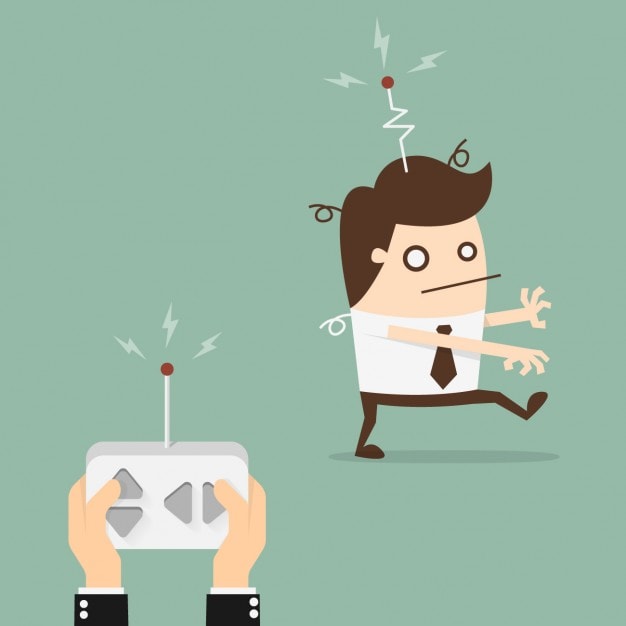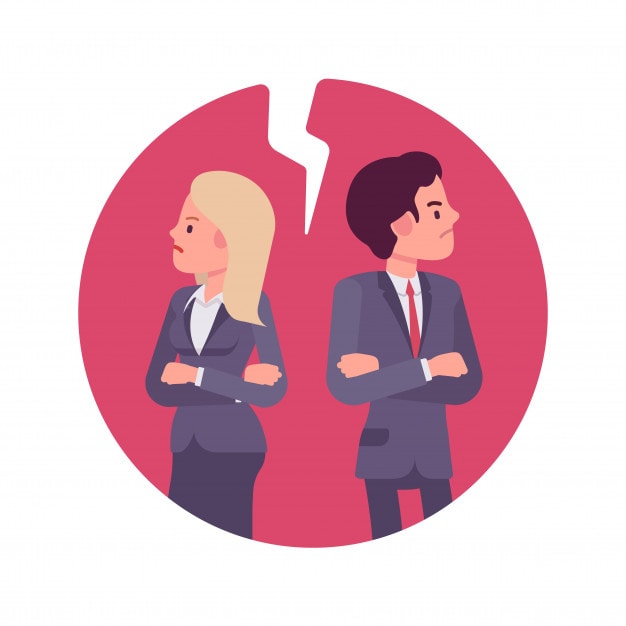
What is Locus of Control and Why Does it Matter?

Locus of control refers to an individual's belief in their ability to control events in their life It is categorized into internal and external types Both have their advantages and disadvantages Understanding one's locus of control can help in personal growth and development
What is Locus of control?
The extent to which an individual believes they have control over the events impacting their life is known as the locus of control. This belief determines their response to occurrences and whether they are motivated to take action, either for or against it.
Simply put, locus of control refers to an individual's belief about whether the outcomes of their actions are within their control or determined by external factors such as fate. Those with an internal locus of control tend to take action to alter their circumstances, whereas those with an external locus of control feel powerless to do so.
Types of locus of control
There are two types of locus of control, and these are
Internal locus of control
Believing that one's actions have a significant impact on the outcome of a situation, taking responsibility for one's actions, and being proactive in problem-solving. Those with an internal locus of control are more likely to set and achieve goals, cope effectively with stress, and have a higher sense of self-efficacy. Overall, having an internal locus of control can lead to greater success and satisfaction in life.
Individuals with an internal locus of control will in most cases take responsibility for their actions
The opinion of someone else will not influence individuals with an internal locus of control
and are more likely to prioritize their own goals and work towards achieving them. This attribute contributes to their overall well-being and resilience, as they are driven to take charge of their own lives and make decisions that align with their personal values. Furthermore, their inclination towards completing tasks to their satisfaction leads to a greater sense of accomplishment and fulfillment in both their personal and professional endeavors.
.
They have a strong belief that their actions and decisions have a direct impact on the outcomes they receive. This mindset allows them to take charge of their own work and perform at their best when given autonomy. As a result, they are more likely to successfully complete tasks when they are allowed to work in a way that aligns with their personal preferences and style.
.
They take full responsibility for their actions and believe that their efforts will lead to positive results. This mindset allows them to take risks and learn from failures, ultimately leading to growth and success. Additionally, their self-confidence allows them to handle criticism and setbacks with grace, as they understand that their success is within their control. Overall, having an internal locus of control is a valuable trait that can lead to personal and professional success.
Individuals with an internal locus of control believe that it is in their hands to maximize the chance of good outcomes and minimize the possibility of adverse outcomes
External locus of control
An individual with an external locus of control tends to blame external factors for their failures rather than taking responsibility for their actions. They may feel helpless and believe that their efforts are futile. Additionally, they may not take initiative in decision-making and rely on others to make choices for them. Overall, an external locus of control can lead to a lack of motivation and a sense of powerlessness in one's life.
Individuals with an external locus of control will blame outside forces or others for their circumstances
The opinion of someone else will influence individuals with an external locus of control
They tend to lack motivation and may not put in the necessary effort to achieve their goals. Hard work is not a priority for them as they do not believe that it will make a significant difference in their outcomes.
due to external factors beyond their control. This mindset makes them believe that they have little to no influence over their life outcomes and that their efforts will not yield any significant results.
Individuals with an external locus of control do not have the confidence to change any possible outcomes in their lives
Examples of locus of control
Both internal and external locus of control have their advantages and disadvantages. Take Andrew, for example, who struggled with sports. If he had an internal locus of control, his poor performance would have likely caused him to fail his Physical Training exam. However, with an external locus of control, he was able to relax and accept whatever outcome occurred.
Similarly, when Mira was offered a promotion after three years of hard work, an internal locus of control would lead her to attribute her success to her own determination and effort. On the other hand, an external locus of control would make her believe that her success was predetermined by fate or luck. These differing perceptions highlight the importance of self-confidence and reliance in the face of internal locus of control, while recognizing the role of timing and circumstances in external locus of control.
The captain of Team India owned up to the defeat in a recent cricket match, taking full responsibility for the team's poor performance instead of attributing it to external factors. In contrast, the captain of the opposing team described their loss as a matter of fate, highlighting the difference in their beliefs regarding the influence of internal versus external factors. The former captain's attitude demonstrated a belief in personal effort and control (internal locus of control), while the latter attributed outcomes to external forces beyond their control (external locus of control).
The term "locus of control" refers to a psychological concept that measures a person's belief in their ability to control their environment and the factors that contribute to success or failure in their life. Individuals with an internal locus of control attribute their successes and failures to their own efforts or lack thereof. Conversely, those with an external locus of control believe that external factors such as prejudice, bias, injustice, circumstances, fate, or luck are responsible for their outcomes.
Advantages of internal locus of control
The advantages of internal locus of control are as follows-
Individuals with an internal locus of control tend to find success easily as they take responsibility for their actions
.
They have a strong sense of personal responsibility and believe that they have the power to shape their own destiny. This leads to a greater sense of motivation and perseverance in achieving their goals.
Furthermore, those with an internal locus of control are less likely to suffer from stress and anxiety as they do not attribute their success or failure to external factors beyond their control.
Overall, having an internal locus of control can lead to greater success and well-being both personally and professionally.
.
They believe that they have the power to control their own lives and take responsibility for their actions. Therefore, when faced with a problem or challenge, they are more likely to take proactive steps to find a solution and improve the situation. Moreover, they view failures as learning opportunities and use them to grow and develop. This mindset enables them to adapt to changing circumstances and overcome obstacles more effectively.
People who possess an internal locus of control have a significant advantage in finding success, as they hold a belief in the effectiveness of hard work and are not reliant on fate for achieving their desired outcomes. Moreover, having an internal locus of control allows individuals to make better decisions, as they possess a natural inclination towards self-reliance and independence.
Individuals who possess an internal locus of control have the advantage of having high self-esteem as they believe that they have the ability to improve things themselves. Additionally, they are less likely to succumb to peer pressure.
.
This helps them to make better decisions and take responsibility for their actions. They also tend to have a more positive outlook on life and are less likely to experience stress and anxiety. This is because they believe that they have the power to control their own destiny and are not at the mercy of external forces. Overall, having an internal locus of control can lead to a more fulfilling and satisfying life.
As a result, they tend to exhibit superior cognitive functioning, which can give them a competitive edge in various aspects of life. This is because their mindset is focused on taking responsibility for their actions and outcomes, rather than blaming external factors. With this proactive approach, they are more likely to achieve their goals and succeed in their endeavors.
Advantages of external locus of control
.
Additionally, these individuals tend to have lower levels of stress and anxiety as they believe that external factors are responsible for their outcomes and not solely their own actions. This can lead to a more relaxed and carefree lifestyle.
However, it is important to note that relying too heavily on an external locus of control can also have its drawbacks. It can lead to a lack of personal responsibility and accountability, potentially hindering personal growth and development.
Rewritten: Those who possess an external locus of control tend to be adaptable in various situations due to their lower expectations. Additionally, they can make valuable team members as they are content with following without the desire to take control or dominate the team.
During times of high tension, adopting a mindset of letting go can prove helpful in promoting calmness and allowing for a fresh start. Those individuals who possess an external focus of control tend to avoid unnecessary stress and often leave outcomes up to fate, resulting in a decreased likelihood of experiencing anxiety or depression.
Disadvantages of internal locus of control
.
Rewritten:
One drawback of having an internal locus of control is that individuals tend to be straightforward when expressing their opinions, which can potentially hurt the feelings of others.
. Their strong belief in their own abilities can sometimes come across as arrogance and lead to misunderstandings with others. It is important for individuals with an internal locus of control to learn how to effectively communicate their ideas and collaborate with others in order to achieve shared goals.
Disadvantages of external locus of control
People who possess an internal locus of control tend to have high standards and strive for perfection, which can become a hindrance when working in a team where not everyone shares the same level of perfectionism.
The disadvantages of external locus of control are as follows-
Individuals with an external locus of control are generally eager to blame external forces for every catastrophe that befalls them.
.
This mindset can lead to a sense of hopelessness and powerlessness, as individuals believe that their fate is determined by external factors beyond their control. As a result, they may not take action to change their circumstances or strive for personal growth.
Furthermore, individuals with an external locus of control may not fully recognize the role they play in their own success. Instead of attributing their achievements to their own efforts and abilities, they may credit luck or other external factors. This can lead to a lack of self-confidence and a feeling of being powerless to influence their own outcomes.
Overall, having an internal locus of control, or the belief that one's actions and choices can affect their outcomes, can lead to greater motivation, self-confidence, and personal growth.
.
Having an external locus of control can lead individuals to perceive themselves as helpless in the face of difficult circumstances, causing them to give up more easily. This mindset can ultimately result in underachievement, which may be concerning for businesses seeking to maximize efficiency and productivity.
In summary, our locus of control greatly influences our lives, actions, and ability to handle outcomes. Striving for balance and adjusting our attitudes and beliefs to promote both internal and external locus of control can be beneficial in different situations.

















